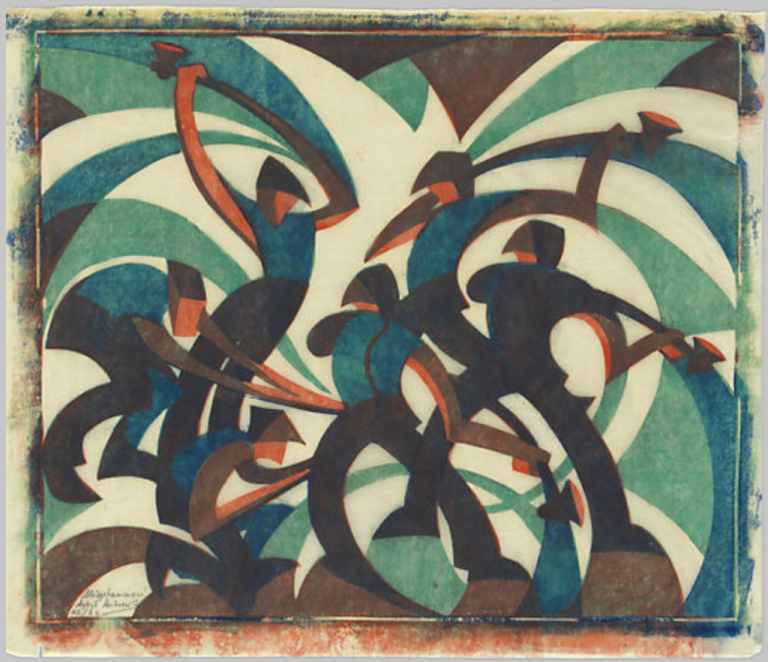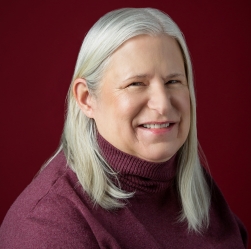For all the virtues of this book, I feel compelled to quibble with Carlisle’s claim that Kierkegaard was ambivalent about Christianity. I wouldn’t put it that way. For Kierkegaard, drawing on the Gospels, true faith entails the risk of taking offense. You may be able to remove or at least reduce this risk by treating religion as if it were only a solid foundation for morality; but then you’d have nothing left but human doctrines, which do not require the new organ of belief that is faith. Religion without faith is popular with those who need some kind of system to secure their identity but who demand to be exempt from having to trust in the unseeable and, above all, from having to obey a will other than their own.
What did the moralist Kierkegaard have to say about this moral outrage? Nothing. Kierkegaard berated the bourgeoisie for their tendency to hide in the crowd and avoid speaking up. In his magnum opus, The Sickness Unto Death, written under the pen name of Anti-Climacus, Kierkegaard observes that the all-too-common wisdom of the day is to keep one’s mouth shut unless one is absolutely sure of what one is about to say. Kierkegaard, like his hero Socrates, warns that when we remain mum we deprive ourselves of an opportunity to have our mistaken views corrected—if they are indeed mistaken. And yet, this champion of intellectual courage never lifted his super-charged quill to protest against slavery. The silence is hard to fathom.
Kierkegaard is commonly mistaken as an “irrationalist” in part because he was adamant that faith is an offense to reason. For Kierkegaard, “where there is certainty there is no faith.” Also: where there is no risk, there is no faith. It is a Grand Canyon leap of faith to commit oneself to belief in a story as offensive to reason as the Gospel. Kierkegaard, under all his pseudonyms, proclaims that faith is something that both attracts and repels. We call Abraham the Father of Faith in large part because of his willingness to sacrifice his son at God’s bidding, an offense to secular reason and ethics if ever there was one.
Philosopher of the Heart
The Restless Life of Søren Kierkegaard
Clare Carlisle
Farrar, Straus and Giroux
| 368 pp.
Carlisle insists that Kierkegaard did not see himself as a reformer. Notwithstanding his barrage of criticisms of the Danish State Church, he steadfastly refused to become involved in reform movements. “Kierkegaard’s sole concern is the spiritual life of ‘the single individual.’ He believes this to be ‘diametrically opposite to politics,’ since it has nothing to do with ‘earthly reward, power, honor.’” Carlisle continues, “The louder the public clamor about these things, the more decisively he sets himself against them.”
As Carlisle explains, Kierkegaard believed that Danish Lutheranism was worse than paganism. At least pagans owned their disbelief, but Kierkegaard’s brethren domesticated Christianity to the point where the Good News was all about dancing around the Christmas tree. Plying the concept of offense, Kierkegaard aimed to make faith possible again by making plain how impossibly difficult it is. Carlisle’s relative silence on the concept of offense aside, this elegantly written biography delivers fresh insights into the life and thought of the enigmatic Pascal of the north. Near the end of his life, Kierkegaard did take to the ramparts, publicly proclaiming that the kind of Christianity practiced in Denmark was not Christianity at all. Because of his use of pseudonyms, it is sometimes hard to identify what Kierkegaard himself really means to say, and harder still to track the evolution of his thinking over time. One thing is clear: his views on what it means to be a Christian were always developing. He eventually arrived at the firm position that to follow Jesus is to imitate Jesus. You can’t have your luxurious lake house and bear your cross too! During the last three years of his life, Kierkegaard launched a public assault on Christendom, maintaining that if the world is patting you on the back, you can be sure that you are headed in the wrong direction. He insisted that Christianity is nothing short of revolutionary. And he believed that when it comes to “equality,” there is only one true form—equality before God. Or as Kierkegaard emphatically puts it: “Before God every person is equally important, without reservation equally important.” (Perhaps this child of privilege would have been less contemptuous of more material versions of equality had he ever had to do a day’s labor.)





